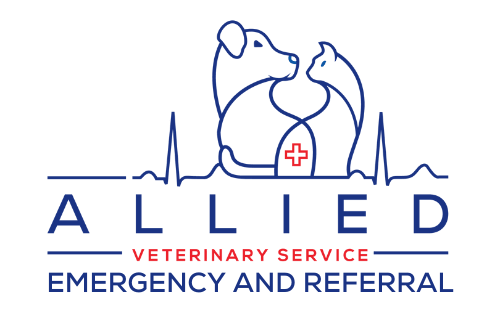Cholecystectomy (Gall Bladder Removal)
Introduction
Cholecystectomy, the surgical removal of the gallbladder, is a procedure recommended for pets experiencing gallbladder disease, such as cholecystitis (inflammation of the gallbladder), cholelithiasis (gallstones), or gallbladder mucocele. These conditions can lead to significant discomfort and life-threatening complications if left untreated.
Why This Surgery?
Gallbladder disease can cause severe abdominal pain, vomiting, jaundice, and lethargy in pets. If the gallbladder becomes obstructed or ruptures, it can lead to a severe infection of the abdomen (peritonitis), which is often fatal without surgical intervention. Cholecystectomy can alleviate these symptoms and prevent the recurrence of gallbladder disease.
Why Perform Surgery at Allied Veterinary Service?
Our surgeons have undergone rigorous residency training in small animal soft tissue surgery and minimally invasive surgery.
Patients receiving this procedure typically receive regional pain blocks to ensure the best experience possible for your beloved pet.
Our doctors will care for your pet 24/7 before and after your pet’s surgery and tailor treatment according to the patient’s needs.
Allied has top-tier equipment - a 4K laparoscope with fluorescence capabilities.
What Does the Surgery Involve?
The procedure involves carefully removing the gallbladder through either traditional open surgery or minimally invasive laparoscopy, depending on the specific case and severity of the disease. Our surgical team takes every precaution to minimize risks and ensure a safe and effective removal.
Benefits of Surgery:
- Relief from Symptoms: Eliminates the pain and discomfort associated with gallbladder disease.
- Prevention of Complications: Reduces the risk of gallbladder rupture and subsequent peritonitis.
- Improved Quality of Life: Allows your pet to return to a more normal, active lifestyle without the recurring issues related to gallbladder disease.
Risks and Complications:
While cholecystectomy is generally safe, potential risks include:
- Surgical Complications: Bleeding, infection, pancreatitis, and reactions to anesthesia.
- Post-Surgical Issues: Temporary digestive disturbances and adjustments to bile flow.
- Biliary Tract Injury: Although rare, injury to the bile ducts or bile leakage can occur, requiring further intervention.
Recovery and Aftercare:
- Hospitalization: Pets typically stay in the hospital for monitoring for 1-3 days post-surgery.
- Pain Management: We provide comprehensive pain relief strategies tailored to your pet's needs.
- Dietary Adjustments: A special diet may be recommended to support your pet's digestion and healing.
- Activity Restrictions: Limited activity is advised during the initial recovery period to ensure proper healing.
Cost Considerations:
Our team will provide an itemized estimate that includes the surgery, anesthesia, hospitalization, pain management, and follow-up care.
Final Thoughts:
Deciding on cholecystectomy for your pet is a significant decision aimed at alleviating suffering and preventing serious complications. At Allied Veterinary Service, we're committed to guiding you through this process, offering expertise, compassionate care, and support every step of the way.
Legal Disclaimer:
This pamphlet is for informational purposes only and is not a substitute for professional veterinary advice. Treatment outcomes vary among individuals. Always consult with your veterinarian for the best course of action for your pet.
Contact Us:
Allied Veterinary Service - Emergency and Referral
8301 93rd Ave N, Brooklyn Park, MN 55445
(763) 463-9800
Open 24 hours

